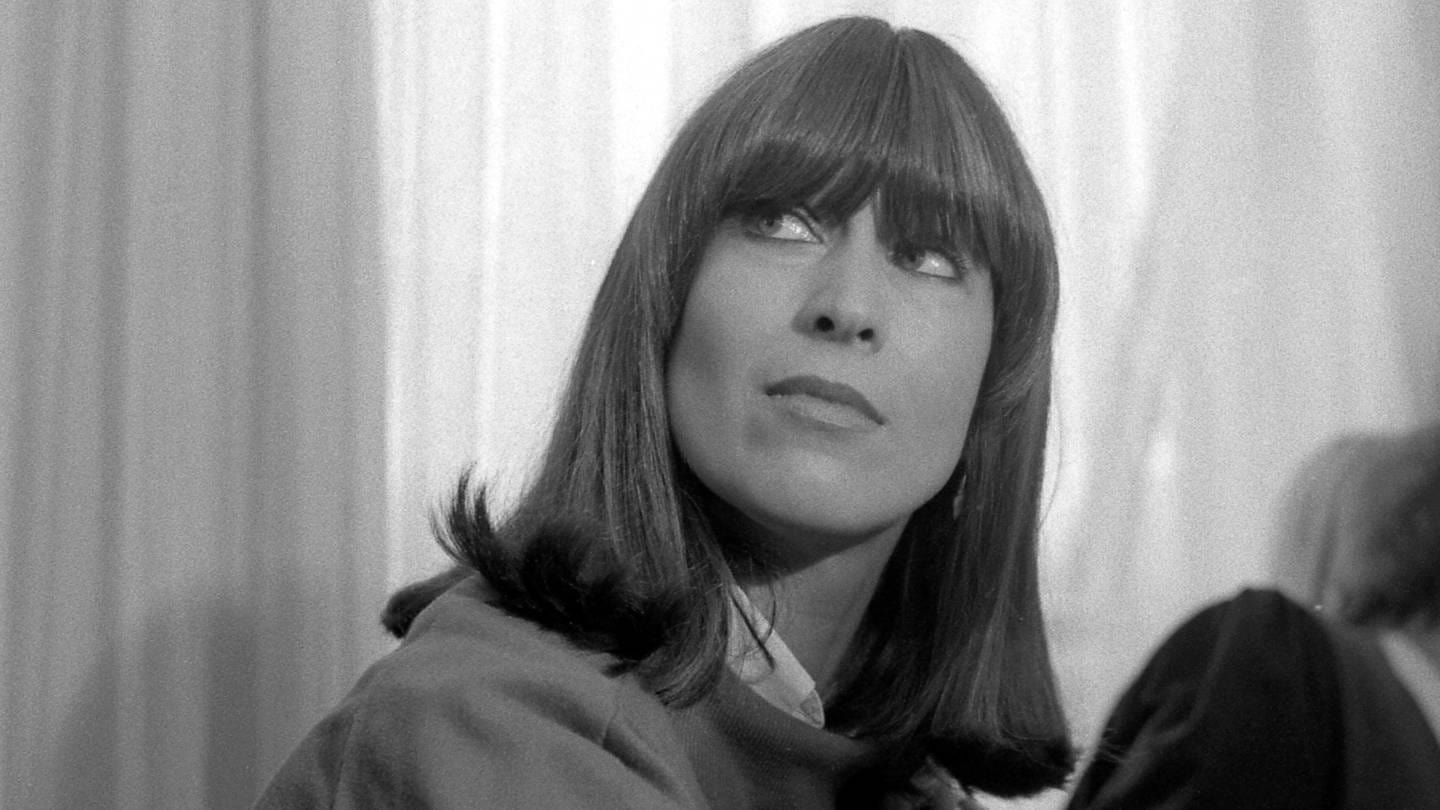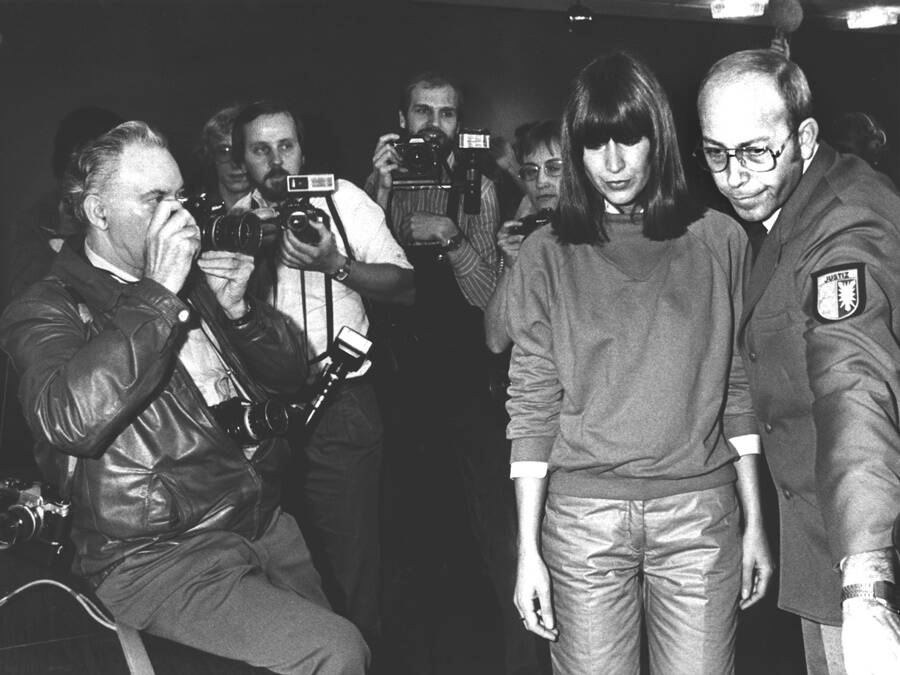Marianne Bachmeier: The Chilling True Story Of Vigilante Justice
Can the profound pain of a mother ever justify the taking of a life? The story of Marianne Bachmeier, who executed her daughter's killer in a German courtroom, forces us to confront the darkest corners of grief and the boundaries of justice.
The chilling events of March 6, 1981, at the Lbeck district court in Germany, remain etched in the annals of legal history. In a moment of raw, unbridled emotion, Marianne Bachmeier, a woman consumed by grief, took justice into her own hands. The third day of the trial, concerning the murder of her daughter, Anna, was underway. Bachmeier, who had been a constant presence in the courtroom, smuggled a Beretta 70 pistol into the proceedings. As the man accused of the heinous crime, Klaus Grabowski, sat in the courtroom, Bachmeier aimed the gun and fired. Eight shots echoed through the courtroom; six found their mark. The act was immediate, decisive, and irreversible. "I wanted to kill him," she later told the judge, her words a stark testament to the intensity of her emotions.
The immediate aftermath was one of stunned silence, followed by chaos. Bachmeier was swiftly taken into custody, offering no resistance. The courtroom, once a space of legal formality, was transformed into a scene of unimaginable drama. The media, both domestic and international, seized upon the story. "So katapultierte sich die Mutter in die Schlagzeilen der Sensationspresse" "Thus, the mother catapulted herself into the headlines of the sensational press." The case became an instant sensation, igniting a firestorm of public debate that continues to smolder even today.
- Maxie Jones Transformative Weight Loss Journey At General Hospital Latest Update
- The Early Years Of Tommy Lee Jones A Journey To Stardom
Marianne Bachmeier's actions sparked an extensive media coverage and public debate. From the likes of Batman to the Punisher, the idea of someone, or a group of people, taking justice into their own hands is a recurring theme in fiction. But the reality of such vigilantism, particularly when fueled by the agonizing grief of a mother, cuts far deeper than any fictional narrative.
The story of Marianne Bachmeier transcended the confines of a single courtroom and a single tragedy. It became a story about the nature of justice, the limits of forgiveness, and the enduring power of a mother's love, even when that love was warped by the desire for vengeance. The raw emotionality of the situation resonated with people across the globe. Her interview reveals the emotional turmoil of a mother who turned to vigilante justice after the tragic loss of her daughter. It is a narrative that challenges our preconceived notions of right and wrong, leaving us to ponder the moral complexities of grief and the human capacity for both love and violence.
| Full Name | Marianne Bachmeier |
| Date of Birth | June 3, 1950 |
| Place of Birth | Lbeck, Germany |
| Died | September 25, 1996 (aged 46) |
| Cause of Death | Suicide |
| Known for | Killing Klaus Grabowski, the murderer of her daughter, Anna |
| Trial | Lbeck District Court, Germany, 1981 |
| Sentence | Six years imprisonment for manslaughter |
| Daughter | Anna Bachmeier |
| Legacy | Symbol of grief and the debate over vigilantism |
Reference: Wikipedia - Marianne Bachmeier
- Reba Cast A Nostalgic Journey From Past To Present
- Natalie Portman And Hayden Christensen A Star Wars Love Story
Marianne Bachmeier's story unfolds as a classic tragedy, born from the depths of despair. The murder of her daughter, Anna, was the initial catalyst. In 1980, Anna was found murdered, and the subsequent trial of Klaus Grabowski, the man accused of the crime, became the stage for Bachmeier's ultimate act of defiance. The courtroom, a place of law and order, was transformed into a scene of raw emotion and retribution.
The details of that fateful day are searing. Bachmeier smuggled a Beretta 70 pistol into the courtroom on the third day of the trial. She carefully positioned herself and, as Grabowski sat in the defendant's seat, she fired. The deliberate, calculated nature of her actions was shocking. "Acht Schsse hallen durch Saal 157 des Lbecker Landgerichts, acht mal hat Marianne Bachmeier (31) den Abzug der Beretta gedrckt" "Eight shots echoed through courtroom 157 of the Lbeck Regional Court, eight times Marianne Bachmeier (31) pulled the trigger of the Beretta." The immediate aftermath was a whirlwind of police sirens, stunned onlookers, and the dramatic arrest of Bachmeier.
The trial and its aftermath fueled a national conversation. The German public was divided. Some saw Bachmeier as a wronged mother, driven to the brink by unspeakable pain. Others viewed her actions as a dangerous affront to the rule of law. The debate, at its core, revolved around the question of whether vengeance could ever be justified, and if so, under what circumstances.
The media played a crucial role in shaping public perception. Sensational headlines, interviews, and documentaries kept the story in the public eye. Bachmeier herself gave numerous interviews, offering a glimpse into her emotional state. She spoke of her grief, her anger, and her unwavering belief that justice had not been served in the murder of her daughter.
One particularly poignant moment was when Bachmeier was asked about her actions. Her response was simple and devastating. Ich wollte ihn tten I wanted to kill him. This blunt admission, delivered with a chilling lack of remorse, underscored the depth of her despair. The case, and the act that defined it, continue to elicit intense feelings even today.
Bachmeier's life, both before and after the courtroom shooting, paints a picture of a complex woman grappling with unimaginable sorrow. She became known as the mother who, in the courtroom, killed the murderer of her daughter Anna in 1981, taking justice into her own hands. The murder case captured hearts and minds around the world.
The film "The slow death of Marianne Bachmeier" further explores her life and the events surrounding the tragedy. Der Fall Marianne Bachmeier gilt auch heute noch als einer der spektakulrsten Flle von Selbstjustiz in Deutschland. "The case of Marianne Bachmeier is still considered one of the most spectacular cases of vigilantism in Germany."
The narrative of Marianne Bachmeier is a stark reminder that justice is often viewed through a subjective lens. While society has established legal systems and processes, the desire for retribution, especially when fueled by personal tragedy, can be a powerful force. The case brings up the moral dilemmas faced by a grieving parent, and the broader implications her story has on society's view of justice and vengeance.
The aftermath of the shooting was not the end of Bachmeiers story. She was arrested and subsequently convicted of manslaughter, receiving a six-year prison sentence. After her release, she struggled to reconcile her actions with her grief. The media spotlight never truly dimmed, and she remained a figure of public fascination, a symbol of both tragedy and defiance.
Marianne Bachmeier, die im Gerichtssaal den Prozess verfolgte, war tief verletzt, weil Grabowski einen Teil seiner Schuld auf ihre Tochter abwlzte. Sagte sie spter in einem Interview ber" "Marianne Bachmeier, who followed the trial in the courtroom, was deeply hurt because Grabowski shifted part of his guilt onto her daughter. She later said in an interview about. The weight of her act, and the knowledge of its lasting consequences, weighed heavily on her.
Bachmeier's story is a haunting reminder of the human cost of crime and the destructive power of grief. It forces us to confront difficult questions about justice, vengeance, and the role of the individual in a society governed by law. It is a story that will continue to be told and retold, debated and dissected, for as long as people grapple with the complexities of the human condition.
Und das 'wie bei mir war ein bisschen anders. Ich bin also da reingegangen, ich hab diesen Rcken gesehen, ich "And the 'how with me was a little different. So I went in there, I saw this back, I". Her words reveal the deep-seated pain that fueled her actions.



Detail Author:
- Name : Durward Fahey
- Username : caesar.fritsch
- Email : gislason.cielo@jakubowski.org
- Birthdate : 1993-11-26
- Address : 9666 Carolyne Rest Suite 998 New Caraborough, NH 53096-4063
- Phone : 904.423.6925
- Company : Buckridge, Sanford and Crooks
- Job : Soil Scientist
- Bio : Est dolor architecto deleniti officia eius fuga harum quae. Iusto sit minima beatae ullam tenetur laboriosam corporis. Vero praesentium et quae.
Socials
linkedin:
- url : https://linkedin.com/in/creola.effertz
- username : creola.effertz
- bio : Nulla dolor quaerat beatae occaecati voluptatem.
- followers : 1736
- following : 436
twitter:
- url : https://twitter.com/ceffertz
- username : ceffertz
- bio : Omnis doloribus vero nobis eos laudantium. Sit vel beatae temporibus quasi aut. Totam ipsam inventore consequuntur facere. Possimus beatae eligendi quae.
- followers : 3408
- following : 1117
tiktok:
- url : https://tiktok.com/@creolaeffertz
- username : creolaeffertz
- bio : Et modi ea et dicta. Est debitis dolor quo velit.
- followers : 4325
- following : 920
facebook:
- url : https://facebook.com/creola_dev
- username : creola_dev
- bio : Non ut sint soluta vitae dolore et.
- followers : 973
- following : 1522